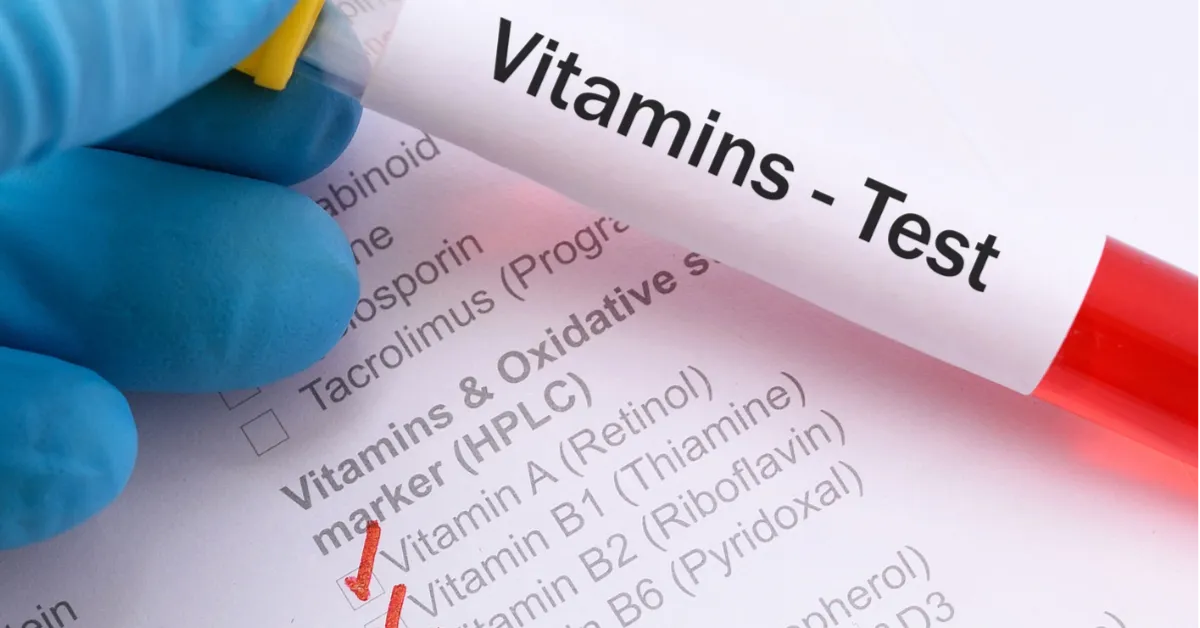EN 18356 Vitamin D Analysis in Fish Oils
The European Standard EN 18356 provides a robust framework for the analysis of vitamin D (specifically, ergocalciferol and cholecalciferol) in fish oils. This standard is crucial for ensuring that dietary supplements and food products meet stringent quality and regulatory standards.
Fish oil is widely used as a nutritional supplement due to its high concentration of omega-3 fatty acids. However, vitamin D fortification ensures the overall health benefits are maximized. Vitamin D plays an essential role in calcium absorption, bone health, and immune function. Therefore, accurate measurement of vitamin D content is critical for maintaining product integrity and compliance with regulatory requirements.
EN 18356 specifies the methodology for analyzing vitamin D in fish oils using High-Performance Liquid Chromatography (HPLC) coupled with Ultraviolet-Visible (UV-Vis) detection. This technique allows for precise quantification of both ergocalciferol and cholecalciferol forms of vitamin D.
The standard also addresses sample preparation, which involves the extraction and purification of vitamin D from fish oil samples. Proper handling is essential to prevent degradation or contamination that could lead to inaccurate results. The process typically includes solvent-based extraction followed by filtration and concentration steps before analysis.
Once prepared, the sample undergoes HPLC separation with subsequent detection at specific wavelengths corresponding to the absorbance characteristics of ergocalciferol and cholecalciferol. Peak integration software is used to quantify these peaks accurately based on calibration standards prepared under identical conditions as test samples.
The acceptance criteria outlined in EN 18356 ensure that results fall within specified limits, reflecting industry best practices for precision and accuracy. Compliance with this standard helps manufacturers meet European Union (EU) directives regarding food safety and quality assurance.
Understanding the importance of accurate vitamin D content measurement is vital not only from a regulatory perspective but also in safeguarding public health. Consumers expect consistent product performance, especially when it comes to dietary supplements like fish oil capsules or fortified foods containing added vitamin D.
In summary, EN 18356 provides an authoritative approach to measuring vitamin D levels in fish oils that supports both consumer trust and compliance with international standards. By adhering to this standard, laboratories can ensure reliable, reproducible results which enhance brand reputation among stakeholders involved in the production and distribution of these products.
Why It Matters
The analysis of vitamin D content in fish oils is significant for several reasons. Firstly, it ensures that consumers receive the correct dosage of this essential nutrient, promoting optimal health benefits such as improved bone density and reduced risk of cardiovascular disease.
- Regulatory Compliance: Adherence to EN 18356 helps manufacturers comply with European Union regulations on food safety and quality assurance. This reduces the likelihood of recalls or legal issues stemming from non-compliance.
- Consumer Trust: Precise vitamin D measurements instill confidence in consumers about the reliability and effectiveness of dietary supplements they purchase. Transparency regarding product contents fosters loyalty towards trusted brands.
Moreover, accurate analysis ensures that products meet specific labeling requirements set forth by regulatory bodies like the European Commission. This includes providing clear information on nutritional facts labels to guide informed purchasing decisions.
In addition, consistent vitamin D content across batches of fish oil supplements guarantees uniform product quality. Variability in manufacturing processes can lead to inconsistent levels of this crucial nutrient, affecting its therapeutic efficacy if consumed improperly.
- Health Risks: Underdosing or overdosing on vitamin D can have adverse effects on health. Proper analysis prevents these risks by ensuring that products contain the recommended daily intake of vitamin D.
- Product Differentiation: For brands aiming to differentiate themselves in competitive markets, accurate vitamin D measurement offers a key selling point emphasizing product integrity and customer satisfaction.
Quality and Reliability Assurance
To maintain high standards of quality and reliability in our analysis of vitamin D content according to EN 18356, we employ strict procedural protocols throughout every stage of the process. From sample collection and preparation through to final reporting, each step adheres meticulously to the requirements stipulated by this European Standard.
- Sample Collection: Samples are collected from reputable suppliers under controlled conditions to ensure they reflect true representation of the product being analyzed.
- Precise Preparation: Rigorous sample preparation methods, including thorough extraction techniques and purification processes, minimize potential errors in subsequent analyses.
We utilize state-of-the-art instrumentation such as High-Performance Liquid Chromatographs equipped with UV-Vis detectors to achieve optimal sensitivity and resolution necessary for detecting trace amounts of vitamin D. Regular calibration and validation of equipment ensures consistent performance over time, further enhancing reliability of our findings.
- Data Analysis: Advanced software applications are employed to accurately integrate peaks corresponding to ergocalciferol and cholecalciferol ensuring precise quantification even in complex matrices.
- Quality Control: Our laboratory maintains robust quality control measures including internal audits, inter-laboratory comparisons, and participation in proficiency testing programs recognized worldwide.
Customer Impact and Satisfaction
The rigorous adherence to EN 18356 by our laboratory directly impacts customer satisfaction by delivering accurate, reliable data that supports informed decision-making processes within various sectors including regulatory compliance, R&D initiatives, and procurement activities.
- Regulatory Compliance: Our results provide peace of mind for manufacturers who must navigate complex regulations governing food safety standards. This enables them to confidently market their products domestically and internationally without fear of non-compliance penalties.
- R&D Insights: Accurate vitamin D content analysis offers valuable insights into product development cycles allowing researchers to fine-tune formulations based on empirical evidence rather than guesswork.
In addition, our services facilitate better procurement practices by enabling buyers to assess suppliers objectively. By ensuring that all parties involved in the supply chain adhere strictly to specified standards, we contribute significantly towards maintaining overall product quality throughout distribution networks.
- Consumer Confidence: Transparent communication regarding analytical methods and results builds trust between brands and their customer base encouraging continued support for quality products.
- Ethical Responsibility: By upholding the highest ethical standards in our work, we contribute positively to the broader community by promoting responsible practices within the food industry.





